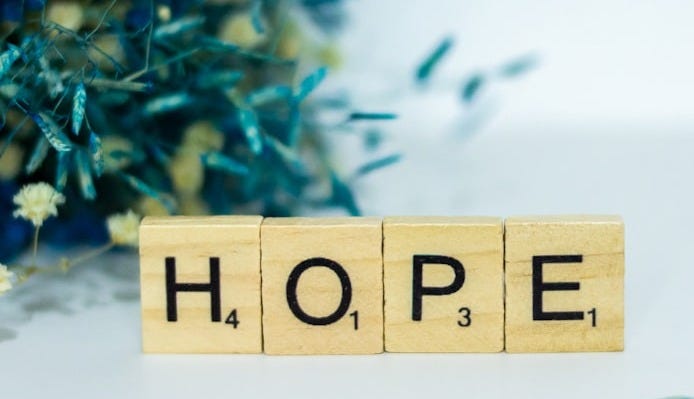Giving Up On Hope
Not Me - Not Today!
More than once, I’ve given up on hope. I didn’t see how life could ever be okay again. My body is aging, my soulmate is gone, the world seems to be in turmoil, and I can no longer do what I want as easily as I could. Thoughts like “what’s the point of trying” and “why bother” crept into my mind. But letting them stay wasn’t the best choice—not even a good one.
I’m choosing hope instead. It contributes to motivation, drives people through difficult times, and fosters a belief in a better future.
Experts say there are reasons to hope. Here are five that stand out for me.
We don’t know what will happen today or tomorrow. Even if we think we can imagine the future, it will probably be different.
We must be open to the good that can come in our future, even when there seems to be no reason to.
Miracles are far more common than we think. They are unexplainable, amazing things that happen quickly and positively change our situation.
Hope is the belief or expectation that the future can be better, and that, more importantly, we have the power to make it so. The opposite of hope is not pessimism but apathy and loss of motivation. Wishing is passive; hope is about taking action.
Being hopeful is associated with a wide range of health and life benefits. Research suggests that people with more hope throughout their lives tend to have fewer chronic health problems, are less likely to experience depression or anxiety, have more substantial social support, and live longer.
Clifford Adams recently wrote about Dr. Edith Eger's book The Choice. This quote stood out: “I can be miserable, or I can be hopeful—I can be depressed or happy. We always have that choice, that opportunity for control.”
Despite all the reasons I mentioned about why bother, I choose to hope these days. Why not?
What I’d say to anyone who asked.
We must choose hope over and over again.
If hope is about taking action, we want to ask ourselves what one meaningful goal we can work on now.
We need to brainstorm solutions, not dwell on the problems, and tap into our imagination.
It isn’t easy, but we might even find a positive in the most challenging situations.
I’d love it if you could share the Aging Well newsletter with others. I want to share the lessons I’ve learned through the years of life and caregiving with as many people as possible. More than anything, I want to continue expanding our community of readers.
Thank you for being part of the Aging Well community.
If you want to contribute to my work, consider donating to the Alzheimer’s Association. This link takes you to their website. The choice is yours.
Janice Walton is a psychologist, widow, mother, grandmother, great-grandmother, and writer. Her book Aging Well: 30 Lessons for Making the Most of Your Later Years is available on Amazon, and she has written articles for Substack.



The opposite of hope is not pessimism but apathy and loss of motivation. It's about thinking there is something I can do and taking action.
Thank you for this! It came right on time for me.